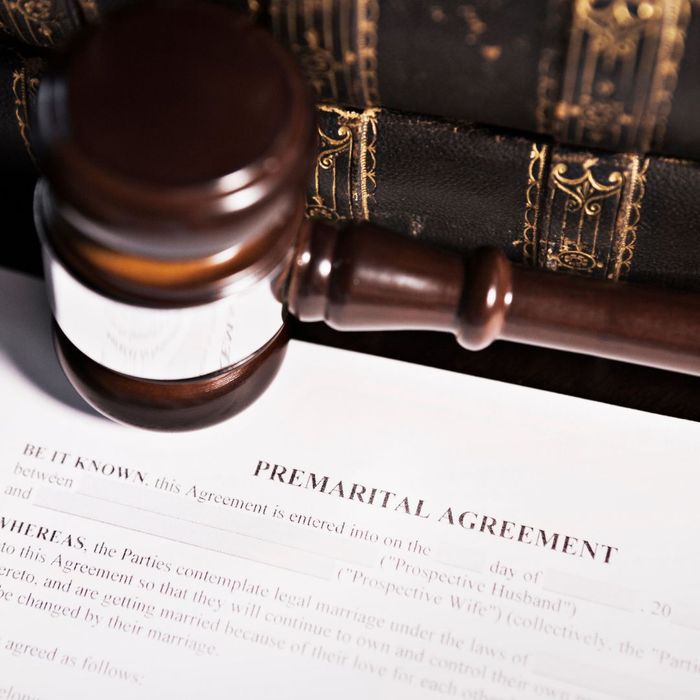If you’re about to get married and are exploring ways to protect your assets, premarital agreements may be something you're looking into or come across. But you need to have a full understanding of what this legal document entails for your future should anything happen between you and your soon-to-be spouse. Learn more about what premarital agreements mean in court and contact Weaver, Bennett & Bland, P.A. in North Carolina today to speak with our family law attorneys.
THINGS YOU NEED TO KNOW ABOUT PREMARITAL AGREEMENTS

What Are Premarital Agreements?
Premarital agreements, also known as prenuptial agreements (“prenups”), are authorized by North Carolina General Statute § 52B, the Uniform Premarital Agreement Act. A premarital agreement is “an agreement between prospective spouses made in contemplation of marriage and to be effective upon marriage.” The agreement must be in writing and signed by both parties in order to be legally binding and valid.
Prenups in family law are utilized most often when one party has significantly more assets than the other or a much higher income, or for second marriages, where a spouse wants to protect the interests of children born with his or her first spouse. Most prenuptial agreements state that assets owned by a spouse as of the date of marriage shall remain that spouse’s separate property and shall not be subject to equitable distribution in the event of a divorce.
However, there are several other reasons that a person may want to enter into a premarital agreement. It is generally wise to present a proposed prenuptial agreement to the intended spouse in plenty of time for review, not the day before the wedding ceremony. If this is a route you’d like to pursue to protect yourself or your children and assets, Weaver, Bennett & Bland, P.A. and our family law experts can help!

What Is Included in a Premarital Agreement or Prenup?
Here’s what the law states:: N.C.G.S §52B-4 provides the content that may be included in a premarital agreement as follows:
52B-4. Content.
Parties to a prenuptial agreement may contract concerning:
(1) The rights and obligations of each of the parties in any of the property of either or both of them whenever and wherever acquired or located;
(2) The right to buy, sell, use, transfer, exchange, abandon, lease, consume, expend, assign, create a security interest in, mortgage, encumber, dispose of, or otherwise manage and control property;
(3) The disposition of property upon separation, marital dissolution, death, or the occurrence or nonoccurrence of any other event;
(4) The modification or elimination of spousal support;
(5) The making of a will, trust, or another arrangement to carry out the provisions of the agreement;
(6) The ownership rights in and disposition of the death benefit from a life insurance policy;
(7) The choice of law governing the construction of the agreement; and
(8) Any other matter, including their personal rights and obligations, not in violation of public policy or a statute imposing a criminal penalty.
The power of a child to support may not be adversely affected by a premarital agreement. (1987, c. 473, s. 1.)
A prenuptial agreement can also indicate the treatment of the income generated by the separate property of a spouse; is it marital or different, is personal property purchased with such income marital or separate? Income earned during the marriage from employment may be addressed and, in the agreement, may be removed from the usual treatment as marital property subject to division upon separation.

How Is a Prenup Written So It Can Be Enforced?
To ensure enforceability, our Charlotte family law attorneys require a full disclosure exhibit from each party listing all assets including but not limited to:
Real estate holdings
Bank accounts
Investment accounts
Retirement accounts
All debts and liabilities
We advise clients on what not to say and how to negotiate with the other party to preclude allegations of undue influence and coercion. We also stress the desirability of a “fair” agreement since if a deal is unconscionable, a court may be more desirous of finding ground to overturn the deal. To avoid potential issues with your prenup, get in touch with us today for advice and other family court services.

How Is Alimony Handled in a Prenup?
Alimony, or a waiver thereof, can be addressed in the premarital agreement. A reservation is enforceable just like any other provision in the contract. However, if one spouse is eligible for public assistance as a result of a separation, the low-income spouse can petition the court to void the waiver to the extent necessary to provide spousal support enough to take the low-income spouse out of his or her eligibility for public assistance.
This essentially means it’s possible for alimony or other related spousal support to be included in the prenup, but it is not guaranteed due to extenuating circumstances. But speaking with a family law professional can help you fully understand all possible outcomes if alimony is written into a premarital agreement.

When Is a Prenup Void or Unenforceable?
If the parties involved execute an agreement, but no marriage results, the deal is void and unenforceable. Likewise, if the agreement was obtained through coercion, threats, undue influence or fraud, the contract can be set aside, and all marital rights will be reestablished. This however generally requires a lawsuit and trial.
Unfairness is not a reason to set aside a premarital agreement; there must have been some wrongdoing in procuring the execution of the contract. North Carolina case law has determined that a statement that “I will not marry you unless you sign the premarital agreement” is not a threat or coercion enough to void a prenuptial agreement. Likewise, not reading the contract or not having an attorney review the agreement before signing are not grounds for setting it aside.
Negotiate A Premarital Agreement With Weaver, Bennett & Bland, P.A.
Given these factors, it’s all the more important for one of our Weaver, Bennett & Bland, P.A. lawyers to review the prenup document you have established before signing and to give advice during the creation of such an agreement. Contact us for any help regarding family law!
